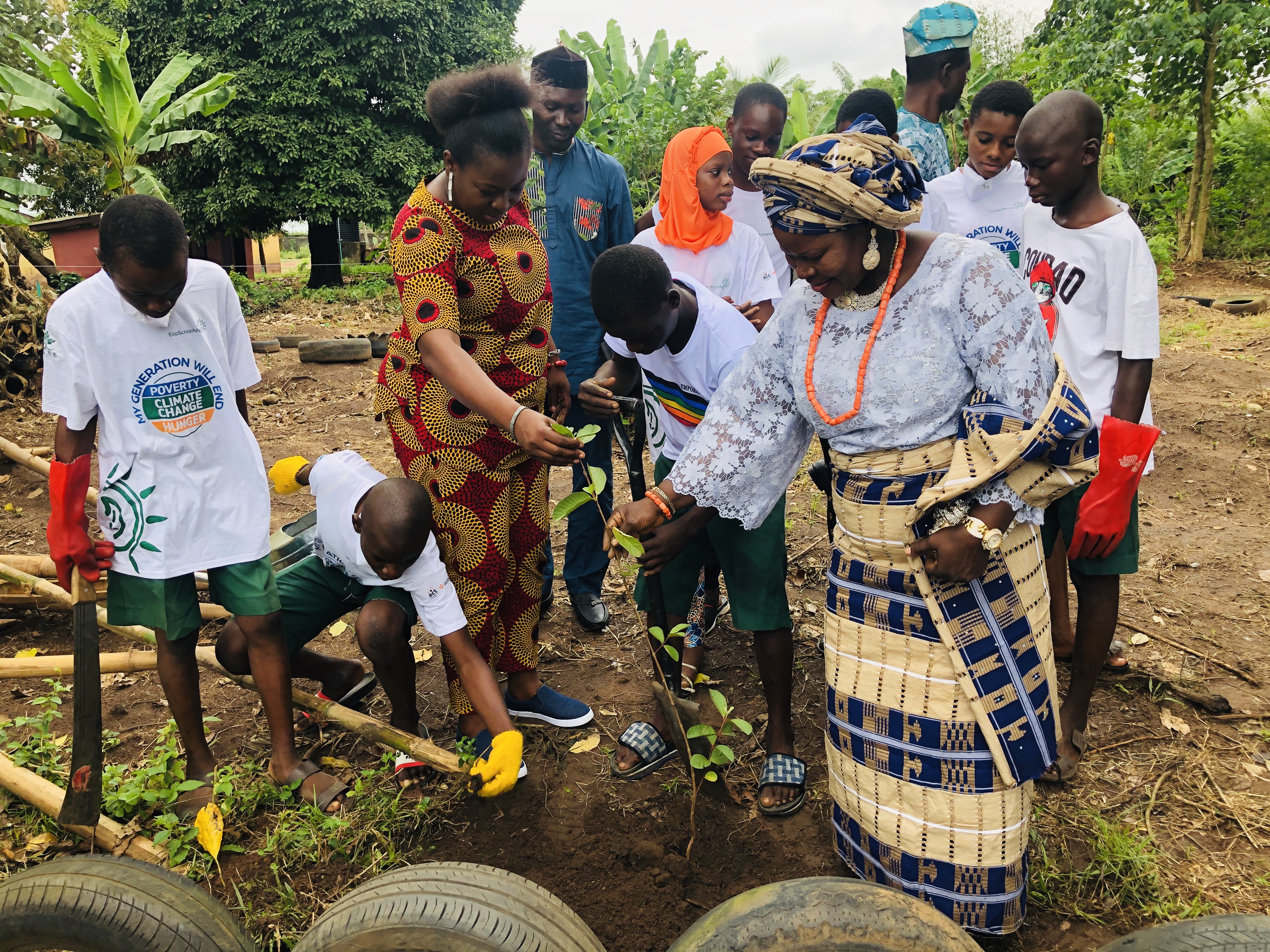Published On 19th June, 2024
Sustainable Waste Management in Urban Areas; A Key to Land Preservation
The rapid expansion of cities and human population in urban areas in Nigeria have necessitated a myriad of challenges faced with sustainable waste management practices. As urban populations expand, the volume and variety of waste produced also increases, putting pressure on existing waste management systems leading to improper waste disposal and environmental pollution. However, amidst these challenges lies a pressing concern: the preservation of lands and other natural resources. With the increase in population across urban areas, the need to adopt efficient and sustainable waste management practices has reached unprecedented levels of urgency(1 & 2). This article embarks on a critical inquiry into the intricate dynamics of waste management in Nigeria - unravelling the practices, challenges, and potential solutions that address land preservation within the Nigerian landscape.
Urban areas encounter numerous challenges when it comes to sustainable waste management and land preservation. As cities grow and human populations increase, the volume of waste generated also increases, thereby applying pressure on existing waste management systems, and leading to a collapse of the already stretched systems. Urban areas such as Lagos, Port Harcourt, Aba, Benin, Kaduna, Kano, and other cities in Nigeria generate a substantial amount of waste, posing significant challenges to land preservation and waste management sustainability.
Traditional methods of waste disposal, such as landfilling and incineration, have encountered several drawbacks, including the emission of greenhouse gases and the contamination of both soil and water. Additionally, these methods are often high-priced and require substantial amounts of land, which can be detrimental to ecosystems and biodiversity. More broadly, the lack of available space for landfills and incinerators in urban areas makes it impossible to dispose of waste in an environmentally beneficial way, which encourages illegal dumping of rubbish across communities.
Urban regions with high population densities generate more waste, which strains the infrastructure currently in place for waste management. This may result in inadequate recycling facilities and crammed landfills. Urban dwellers' fast-paced lifestyles can increase the amount of garbage produced, particularly food waste and single-use plastics. This may put pressure on already-existing waste management systems and complicate the adoption of sustainable waste management techniques.
Non-governmental organizations (NGOs) play a crucial role in addressing the challenges of sustainable waste management and land preservation in Nigeria. At Aspire Coronation Trust (ACT) Foundation we are committed to addressing challenges and associated vulnerabilities across the African Continent including the issue of sustainable waste management and land preservation amidst other focus areas. As part of ACT Foundation’s effort to address the problem of waste management, the Foundation has supported over nine (9) organizations in providing sustainable solutions to the challenge of sustainable waste management practices, safe and potable water in African communities. Sustainable waste management practices provide a more economical and ecologically responsible way to handle waste in urban areas. Through ACT Foundation’s partnership with FABE International Foundation, we have observed that cities like Lagos, Abeokuta, among others have adopted composting, recycling, and waste-to-energy conversion and other sustainable waste management practices. Urban areas may, however, minimize the quantity of waste that is dumped in landfills, cut down on greenhouse gas emissions, and free up space for other purposes by implementing these practices.
Furthermore, sustainable waste management plays a crucial role in preserving land in several ways. First, by reducing the amount of waste sent to landfills, sustainable waste management practices help to minimize the need for new landfill sites. This is particularly important in urban areas like Lagos, Port Harcourt, and Benin, Edo state where land is often in short supply and the establishment of new landfill sites can be challenging and expensive.
Secondly, sustainable waste management practices help to reduce the release of greenhouse gases from waste disposal facilities. Landfills and incinerators are significant sources of methane emissions, which contribute to climate change. By adopting waste-to-energy conversion and other sustainable waste management practices, urban areas can reduce their greenhouse gas emissions and mitigate the impacts of climate change. By reducing the need for new landfill sites and minimizing the release of greenhouse gases, sustainable waste management practices allow urban areas to preserve land for future generations and promote sustainable development.
Community engagement and public awareness campaigns are effective tools for driving behavioural changes toward sustainable waste management practices(3). Advocacy, community awareness, and sensitization programs can help promote waste reduction, increase recycling, and responsible disposal behaviours among residents. Nevertheless, there is a need to strengthen policy and regulatory frameworks governing the waste management sector to ensure compliance with designed policies and regulations for sustainability(4).
In conclusion, sustainable waste management in urban areas is a veritable technique for land preservation. Thus, by adopting sustainable waste management practices, urban areas can reduce the amount of waste sent to landfills, minimize the release of greenhouse gases, and conserve land for other uses. As the global population continues to urbanize, it is crucial for urban areas to adopt sustainable waste management practices to ensure the preservation of land for future generations.
1. Farrell, K. An Inquiry into the Nature and Causes of Nigeria’s Rapid Urban Transition. Urban forum 29, 277–298 (2018). https://doi.org/10.1007/s12132-018- 9335-6
2. Ike, C., Ezeibe, C., Anijiofor-ike, C.S. (2018). Solid Waste Management in Nigeria: Problems, Prospects, and Policies. The Journal of Solid Waste Technology and Management 44(2):163-172.
